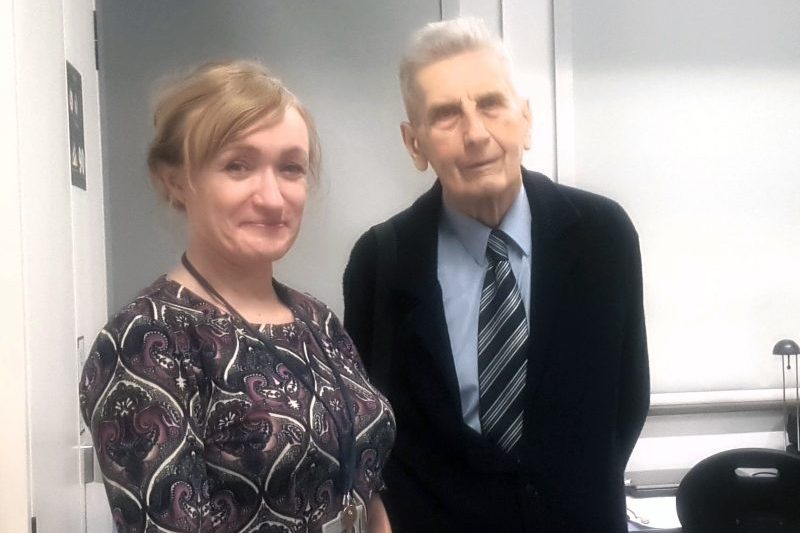Conservation chemistry
In the field of conservation chemistry, our research focuses on the degradation of materials and ways to prevent it, as well as on the development of modern techniques for the physico-chemical analysis of materials used in museum objects (paintings, prints). The team specialises in the study of the degradation of natural polymers (cellulose, proteins) and dyes. In particular, research methods tailored to the study of reaction mechanisms and non-invasive or micro-invasive techniques for the analysis of works of art based on infrared spectroscopy and photoacoustic signal detection, spectrophotometry in visible light, X-ray fluorescence, gel and gas chromatography are being developed.
Degradation of natural polymers
For many years we have specialised in studying the degradation process of natural polymers
Non-destructive analysis methods
We are developing non-destructive measurement methodologies for conservation chemistry applications
Popularising chemical analysis among conservationists
We actively promote research topics and methods of art analysis with our activities
Cooperation with cultural institutions
We are open to collaboration - we are active in carrying out new research projects with cultural institutions
Beginnings of conservation chemistry at the Jagiellonian University Department of Chemistry
 Research in the field of conservation chemistry in our team was initiated by its former head, Prof. Andrzej Barański, as part of the “Acid Paper” Multiannual Government Programme initiated and implemented by the team. This programme resulted, among other things, in the establishment of the first centre for the mass conservation of prints in Poland – the Paper Clinic – at the Jagiellonian Library. The programme also made it possible to obtain the first equipment for the Paper Durability and Degradation Research Laboratory at the Jagiellonian University’s Faculty of Chemistry.
Research in the field of conservation chemistry in our team was initiated by its former head, Prof. Andrzej Barański, as part of the “Acid Paper” Multiannual Government Programme initiated and implemented by the team. This programme resulted, among other things, in the establishment of the first centre for the mass conservation of prints in Poland – the Paper Clinic – at the Jagiellonian Library. The programme also made it possible to obtain the first equipment for the Paper Durability and Degradation Research Laboratory at the Jagiellonian University’s Faculty of Chemistry.
History of conservation chemistry
Preservation Chemistry evolved from the problems of Preservation Science – the science of preserving and protecting information media. Preservation Science is part of Materials Engineering – a discipline at the intersection of science, technology, humanities and even biology. The main problems it addressed were described by H.J.Porck and R.Teygeler as:
- the causes and course of degradation of information carriers,
- active antidegradation implemented by technological and preservation operations,
- passive antidegradation, i.e. the selection of optimum storage conditions for the media.
In Poland, the term conservation chemistry is becoming more widespread and refers to a broader area of issues, in particular it also includes the identification of materials used in the manufacture of the object under study (which is particularly important when making conservation decisions and for the authentication of the object).
Up-to-date research topics in the Team
-
-
-
- Nanoceluloza+nanocząstki metali. Synteza i badania funkcjonalizowanej nanocelulozy w kierunku immobilizacji nanocząstek metali.
- Wielokulturowa Rzeczpospolita w czasach Zygmunta Augusta, Wawel Royal Castle – State Art Collections in the framework of the Promoting Cultural and Artistic Diversity in the European Cultural Heritage programme co-financed by the EEA Financial Mechanism 2009-2014 and the Norwegian Financial Mechanism no. 15d/II/2013/PL09; 2015-16
- Opracowanie metody analiz rozkładu mas cząsteczkowych fibroiny za pomocą chromatografii żelowej; Narodowe Centrum Nauki, 2015-16
- Ocena efektów dezynsekcji obiektów plazmą niskotemperaturową, Narodowe Centrum Nauki, 2012-15
-
-
-
-
-
- Jagiellonian Library, National Museum in Krakow (Laboratory of Non-Destructive Analysis and Testing of Historical Objects),
- Wawel Royal Castle
- Academy of Fine Arts in Krakow,
- Central Laboratory of Archival Conservationn
-
-
